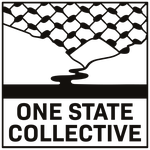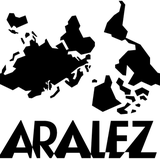Join us for a panel discussion on the environmental devastation in Palestine and South Lebanon, focusing on how settler colonialism exacerbates climate change. Our panel will examine the destructive impact of militarism on ecosystems and communities, covering deforestation, water contamination and biodiversity loss. Expert speakers will highlight the urgent need for sustainable solutions and justice, providing an actionable roadmap. This is a global issue; what happens to nature anywhere affects us everywhere. Learn from well-rounded experts and local activists, and engage in meaningful conversations about mobilising to preserve our planet for a healthy and equitable future. In the second part of this programme we will discuss how to include these narratives in the Dutch climate movement, reflect on its silence so far and explore ways to move forward.





De organisatie van de Klimaatmars, die vrijdagmiddag over de Amsterdamse Zuidas trekt, zette vorig jaar de microfoon uit toen het ging over het verband tussen genocide en ecocide. Maar het gezellig willen houden gaat ten koste van solidariteit en antiracisme die in de klimaatstrijd juist zo hard nodig zijn, vinden 28 maatschappelijke organisaties, waaronder Aralez, XR Rebels of Colour, Kick Out Zwarte Piet, Black Pride NL, ASEED en Queers4Climate. ‘Wiens belangen behartigt de Klimaatcrisis Coalitie eigenlijk?’

Waarom schrijven diverse groepen en organisaties een brandbrief naar de klimaatmars? Omdat er een groeiende verontwaardiging is over het onverantwoord handelen van coalitiepartners, waaronder Greenpeace, Milieudefensie, Fossiel Vrij en de FNV, met betrekking tot klimaatrechtvaardigheid. Het lijkt erop alsof de partners niet begrijpen dat de weg naar klimaatrechtvaardigheid via een bevrijd Palestina loopt. Het lijkt erop dat de klimaatmarsorganisatie de oorzaak ontkent van de klimaatcrisis.

From protests at COP28 in December last year, demanding a ceasefire in Gaza, to social media campaigns such as #NoClimateJusticeWithoutHumanRights, climate activists are making a case for the inclusion of Palestine in the global climate justice conversation. According to a recent study published by British and American researchers, the first months of Israel’s war on Gaza produced more planet-warming gases than 20 climate-vulnerable nations do in a year. But beyond carbon emissions from the war on Gaza, how does the decades-long Israeli occupation of Palestinian territories connect to the broader narrative of global climate justice?








